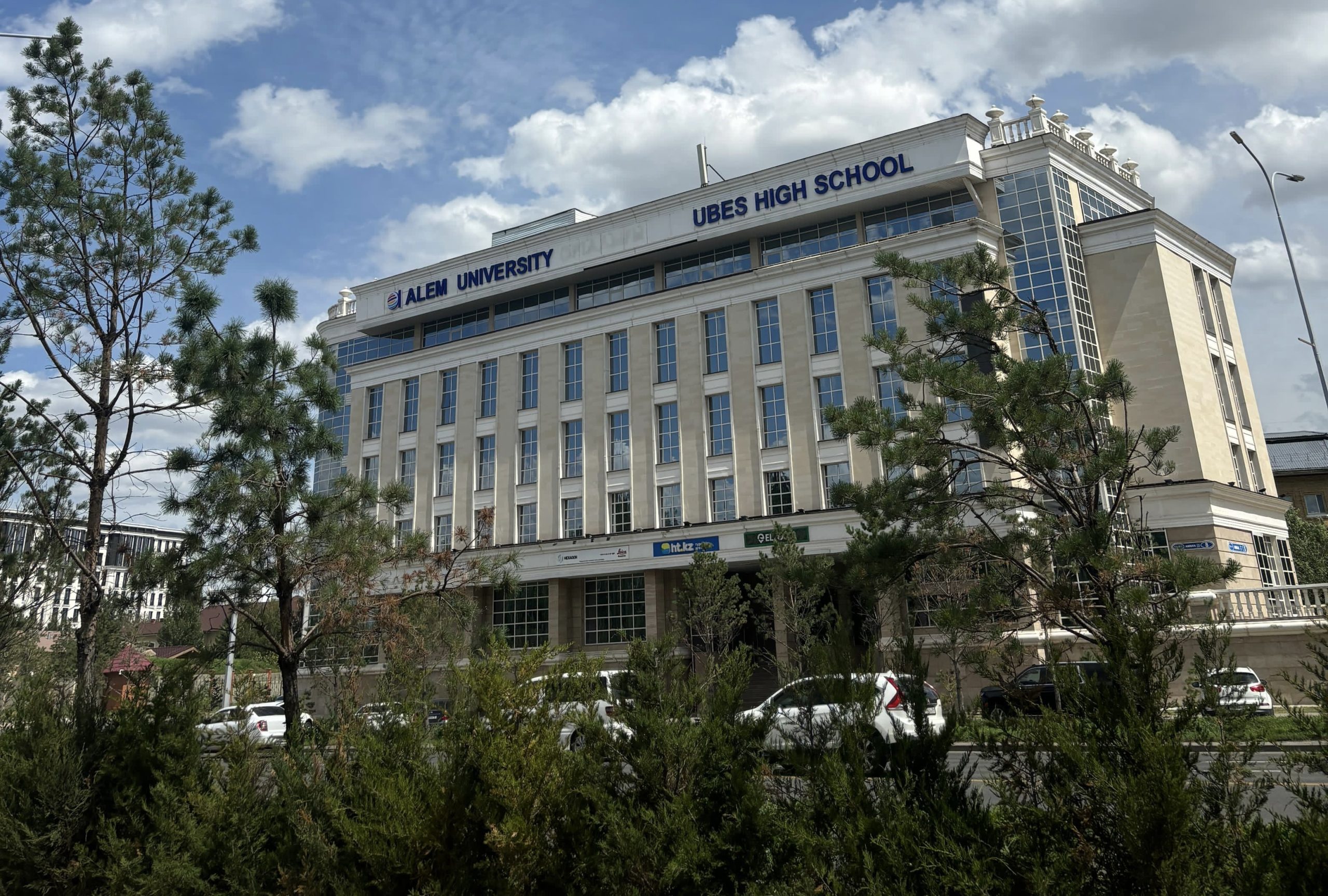
GULMIRA KURGANBAYEVA
Manager, Educator, Entrepreneur, PhD in Economics, MPA, Analyst, Founder of “Ulttyq Ustaz Online Academy,” “Ulttyq Business & Engineering School,” and “Alem University”
“We nurture individuals with character”
Alem university is not just a building with classrooms and a library. It is a whole world where knowledge transforms into experience, and students become professionals. It is here that ideas are born that change perspectives, and future leaders are formed.
Gulmira Kurganbayeva, an educational analyst and founder of the “UlttyqUstaz Online Academy,” believes that education can become the foundation for forming a national idea that strengthens the country and helps raise the economy and people’s standard of living. In her interview with “Sultan,” she talked about creating a model for a new global university, a multimodal educational environment, issues in teacher training, the importance of continuous education, and the disruptive approach (from English, Disruptor, changing the rules of the game).
“Our goal is to create great educational organizations capable of nurturing strong individuals with high social responsibility and the potential for realization.”
We strive to create “Alem University,” which will be a global center of education, shaping graduates capable of contributing to the world while remaining committed to their Kazakh roots. Our graduate is a citizen of the world.
We understand that the education system plays a key role in shaping the future of our country. We are convinced that education should become the foundation for a national idea that strengthens the nation and helps the country make a qualitative leap forward.
“Alem University” focuses on four key schools:
- Institute of Educational Development – School of Pedagogy,
- School of Business and Entrepreneurship,
- School of Engineering, and
- School of New Media and Communications.
Our university, unlike many others, emphasizes 80% practical training. This means that in addition to the theoretical foundation, students will have the opportunity to actively apply their knowledge in practice.
We believe that even at the university level, a successful teacher should have classroom experience, a manager should manage projects, and an engineer should conduct pilot projects. Our goal is to provide students with the opportunity to develop their skills and gain practical experience. We see the need for changes in programs, management, infrastructure, and partnerships with the business sector. Our goal is to create a system-forming university that contributes to the transformation of education and the preparation of qualified specialists for all areas of life.
The second key point is the creation of an appropriate educational environment. We strive to create an environment where students can interact not only with their peers but also with representatives of public and private organizations. We want our students to have the opportunity to get acquainted with various professional communities and learn how entrepreneurs, engineers, and other specialists think.
It should be noted that even the approach to management in these schools is different. While universities typically have only an academic dean, we have introduced positions for business leaders, project managers, or, for example, producers in the School of Media, who understand the practical side and know how a particular system works from the inside, from the market perspective. In our School of Media, the producer is a leader with a vision, capable of clearly structuring the entire system and understanding who among the future graduates, based on their potential, will be a director, who will be the main actors, and who will be the leading figures.
The third key point is our desire to form a “media vision” in our graduates. We believe that an important criterion for success is the ability to see and present new opportunities for promoting their ideas and forming a personal brand.
It is necessary to recognize that modern students will change their professions several times in their lives, and therefore we also prepare them for this flexibility and change.
GULMIRA KURGANBAYEVA
Manager, Educator, Entrepreneur, PhD in Economics, MPA, Analyst, Founder of “Ulttyq Ustaz Online Academy,” “Ulttyq Business & Engineering School,” and “Alem University”
“We nurture individuals with character”
Alem university is not just a building with classrooms and a library. It is a whole world where knowledge transforms into experience, and students become professionals. It is here that ideas are born that change perspectives, and future leaders are formed.
Gulmira Kurganbayeva, an educational analyst and founder of the “UlttyqUstaz Online Academy,” believes that education can become the foundation for forming a national idea that strengthens the country and helps raise the economy and people’s standard of living. In her interview with “Sultan,” she talked about creating a model for a new global university, a multimodal educational environment, issues in teacher training, the importance of continuous education, and the disruptive approach (from English, Disruptor, changing the rules of the game).
“Our goal is to create great educational organizations capable of nurturing strong individuals with high social responsibility and the potential for realization.”
We strive to create “Alem University,” which will be a global center of education, shaping graduates capable of contributing to the world while remaining committed to their Kazakh roots. Our graduate is a citizen of the world.
We understand that the education system plays a key role in shaping the future of our country. We are convinced that education should become the foundation for a national idea that strengthens the nation and helps the country make a qualitative leap forward.
“Alem University” focuses on four key schools:
- Institute of Educational Development – School of Pedagogy,
- School of Business and Entrepreneurship,
- School of Engineering, and
- School of New Media and Communications.
Our university, unlike many others, emphasizes 80% practical training. This means that in addition to the theoretical foundation, students will have the opportunity to actively apply their knowledge in practice.
We believe that even at the university level, a successful teacher should have classroom experience, a manager should manage projects, and an engineer should conduct pilot projects. Our goal is to provide students with the opportunity to develop their skills and gain practical experience. We see the need for changes in programs, management, infrastructure, and partnerships with the business sector. Our goal is to create a system-forming university that contributes to the transformation of education and the preparation of qualified specialists for all areas of life.
The second key point is the creation of an appropriate educational environment. We strive to create an environment where students can interact not only with their peers but also with representatives of public and private organizations. We want our students to have the opportunity to get acquainted with various professional communities and learn how entrepreneurs, engineers, and other specialists think.
It should be noted that even the approach to management in these schools is different. While universities typically have only an academic dean, we have introduced positions for business leaders, project managers, or, for example, producers in the School of Media, who understand the practical side and know how a particular system works from the inside, from the market perspective. In our School of Media, the producer is a leader with a vision, capable of clearly structuring the entire system and understanding who among the future graduates, based on their potential, will be a director, who will be the main actors, and who will be the leading figures.
The third key point is our desire to form a “media vision” in our graduates. We believe that an important criterion for success is the ability to see and present new opportunities for promoting their ideas and forming a personal brand.
It is necessary to recognize that modern students will change their professions several times in their lives, and therefore we also prepare them for this flexibility and change.

